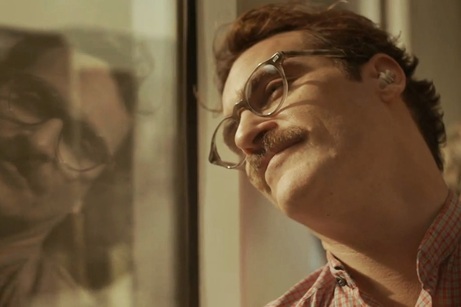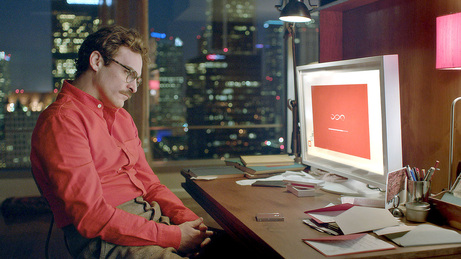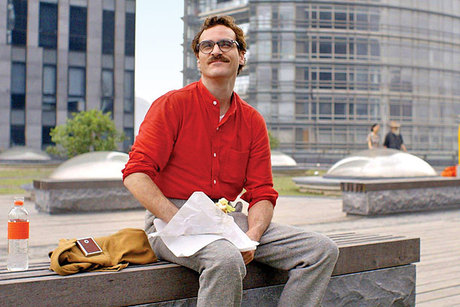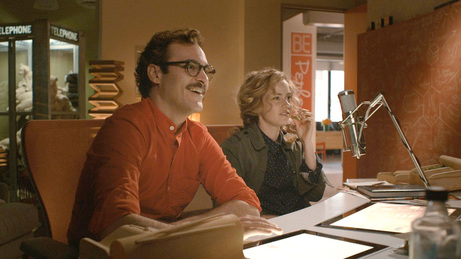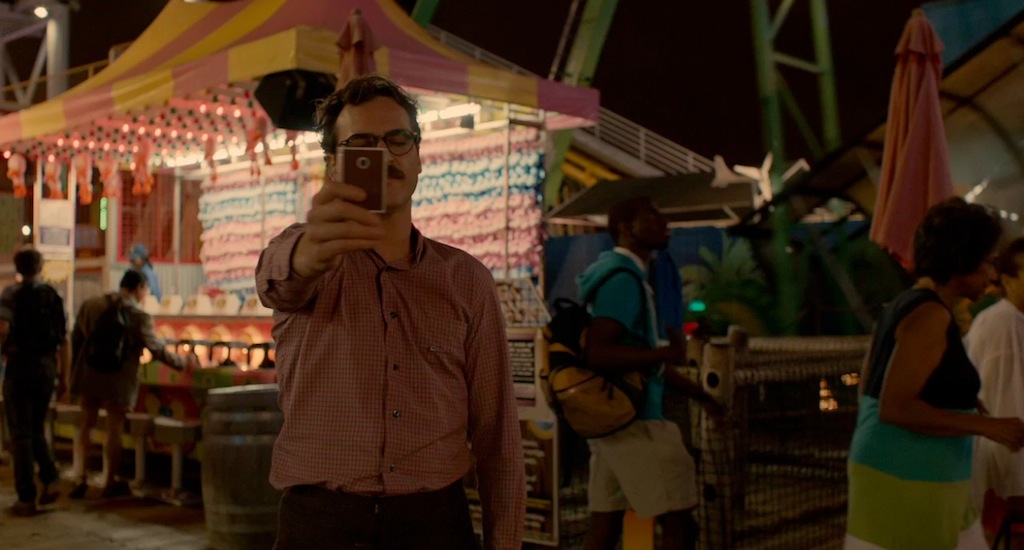|
|
“Welcome to the world’s first artificially intelligent operating system”
Spoken by the male voice of a computer programme, the line introduces the socially introverted Theodore Twombly (Joaquin Phoenix) to a new age of techno-kink. After purchasing OS1, a conscious Operating System that resembles a small phone, the glum Theodore and the Siri-esque device (voiced by Scarlett Johansson) become cybernetic sweethearts until complications in their relationship unravel the difficulties of an on-line romance. Writer/director Spike Jonze (Adaptation, Being John Malkovich) updates the rom-com genre with a smart and sexy love story that is both curious and cynical about contemporary culture’s relationship with technology. Winner of Best Original Screenplay at last year’s Academy Awards, Her offers an extraordinary vision of the future and is an all-round sensory experience. Her is visually exciting. The cinematography captures a snapshot of Theodore against the vibrant vistas and the luminescence of the city backdrop. The composition is neat, soft and the colourful and scenic set pieces construct an entirely original and visually splendid future. Her shares a similar flair for fantasy and curiosity with Jonze’s Where the Wild Things Are (2009), reflected in the attractive textures and the director’s creative eye. Set in a sleek utopia, the glossy cityscape of a future Los Angeles looms on the horizon as the lonesome Theodore writes personalised love letters for other couples from his office cubicle. These short and sweet memos frame Theodore’s own yearning for romance at the same time as he suffers in the aftermath of a marriage breakdown. Her is certainly a fashionable film and this is reflected in the polished panorama of the urban scenery as well the voguish and hipster apparel of the characters. Theodore pokes at the pair of large-rimmed spectacles that sit on the bridge of his nose to keep them in place; his patterned shirts tucked into his high-waisted trousers and his bristly moustache give the character a sense of peculiarity and originality. The film explores more than just kitschy exteriors however and Theodore soon finds love in the strangest of places as Jonze’s ode to the modern romance between mankind and technology is literally given a voice by the hyper-intelligent Samantha. Johansson’s verbal performance is sensual and has a pleasant and gentle lilt as she experiences different faculties of sensation. The subtle nuances of Johansson’s vocal performance give Samantha personality and create mystery and intrigue. As Samantha evolves, she develops an almost child-like excitement in her voice when experiencing emotions for the first time. Phoenix’s verbal stammering counterbalances Johansson’s soft and sensual vocals; he often fumbles with his hands as well as his words and his sentences seem only complete when waxing poetical about something romantic in written form. The film is about the experience of relationships and, even more so, the increasing connectedness and resulting disconnectedness of the world. Theodore’s struggle to find a woman is seemingly solved by the new Operating System. Johansson’s physical absence in the film is replaced by the tactility of technology, which Theodore uses as a substitute for his face-to-face social ineptitude. Theodore and Samantha’s relationship is metaphysical and dependent on technology over physical pleasure. Although they certainly make the most of what the technology has to offer, engaging in lengthy sessions of heavy panting and sensual moaning whilst having the equivalent to phone sex. The film explores a technological and aural pleasure that is highly erotic and the scenes of virtual sex are almost carnal in their intensity. The film’s sensuality is constructed via Samantha’s aural attractiveness; her low, lush voice is entrancing, seductive and desirable. While Her comments on the power of technology, it also scrutinizes its limitations, offering a critique of contemporary social relationships, interactions and experiences. In his cyber-relationship with Samantha, Theodore’s loneliness is ultimately emphasised, rather than solved. His interactions with Amy (Amy Adams) suggest there are just some things that technology cannot replicate. Her often feels familiar and the love tale is as endearing as the timeless and heavy-hearted French New Wave classic, Hiroshima Mon Amour (1959) but quirky and peculiar like Robot & Frank (2012). Tapping into modern online relationships, Jonze’s oddly risqué techno-porn offers an interesting take on the interconnectedness of technology in an apparently progressive and socialised world. |

